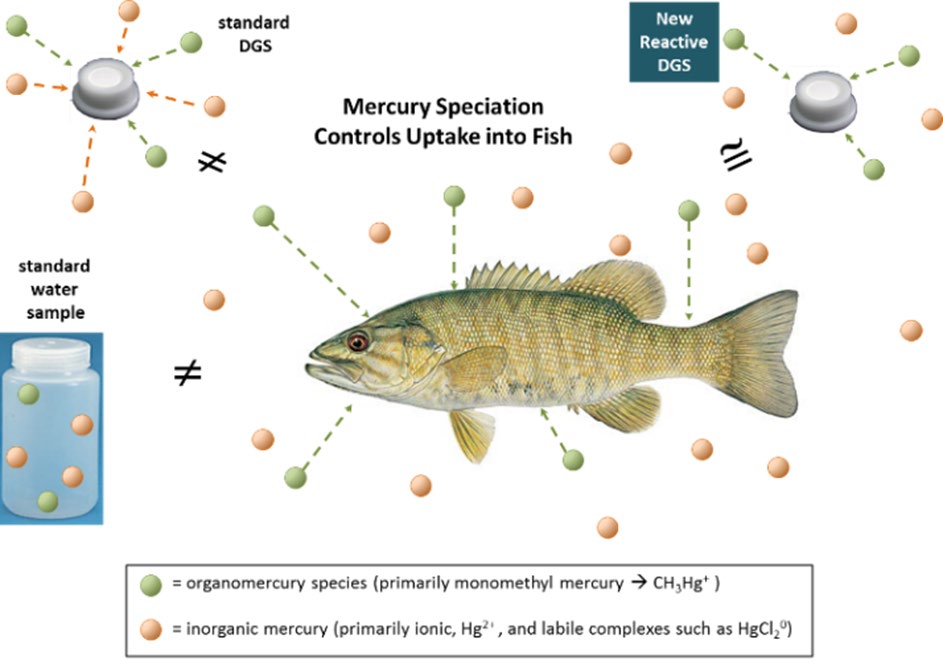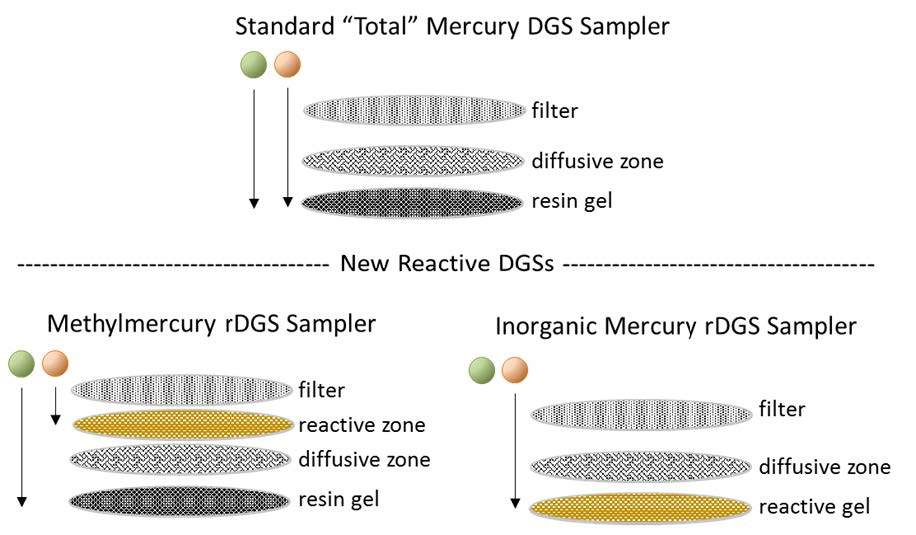Tech Briefs
Savannah River National Laboratory
Mercury Speciation using a Reactive Diffusive Gradient Sampler – rDGS
Savannah River National Laboratory (SRNL) has developed a new reactive diffusive gradient sampler (rDGS) device that incorporates targeted chemical reactions – reduction and amalgamation – to differentiate mercury species in the environment simply and inexpensively.

Benefits
- Targets organic (methymercury) or inorganic mercury
- Improves monitoring of mercury in the environment
- Provides mercury speciation data using direct analysis of total mercury in solids
- Simple and inexpensive
Applications
- Environmental and Regulatory Monitoring
- Scientific Research
- Aquaculture
- Environmental sampling equipment suppliers and analytical equipment manufacturers
Description
The traditional diffusion gradient sampler (DGS) for mercury collects both inorganic species and organic “methylmercury.” Since the uptake of mercury through the food chain and the amount that builds up in fish are primarily determined by methylmercury, not total mercury or inorganic mercury, a new type of reactive DGS (rDGS) that differentiates mercury species represents a major advancement in our ability to monitor, understand, and mitigate mercury contamination in streams, rivers, and lakes.
SRNL has developed and engineered an alternative DGS that incorporates targeted chemical reactions to differentiate key mercury species. We have developed multiple versions of the rDGS to selectively measure either methylmercury or inorganic mercury. All versions rely on manipulating inorganic mercury behavior through the combined processes of chemical reduction and amalgamation. The methylmercury rDGS removes inorganic mercury using these reactions along the diffusive path, allowing methylmercury to freely move to a standard passive thiol-based resin collection gel. The inorganic rDGS employs a standard diffusive zone but replaces the passive resin gel with a gel that actively reduces and amalgamates inorganic mercury.
After deployment, the solid rDGS collection gels can be analyzed simply and inexpensively for total mercury. For mercury speciation, the rDGS provides a low-cost alternative to complicated, time consuming and expensive laboratory methods.

Intellectual Property
Prototypes of the methylmercury rDGS have been fabricated and successfully tested; additional work is planned to optimize configuration, test shelf life, confirm performance, and assess stability of loaded samples. A U. S. Patent has been applied for.
Download Tech Brief
Contact Information
Savannah River National Laboratory
E-mail: partnerships@srnl.doe.gov